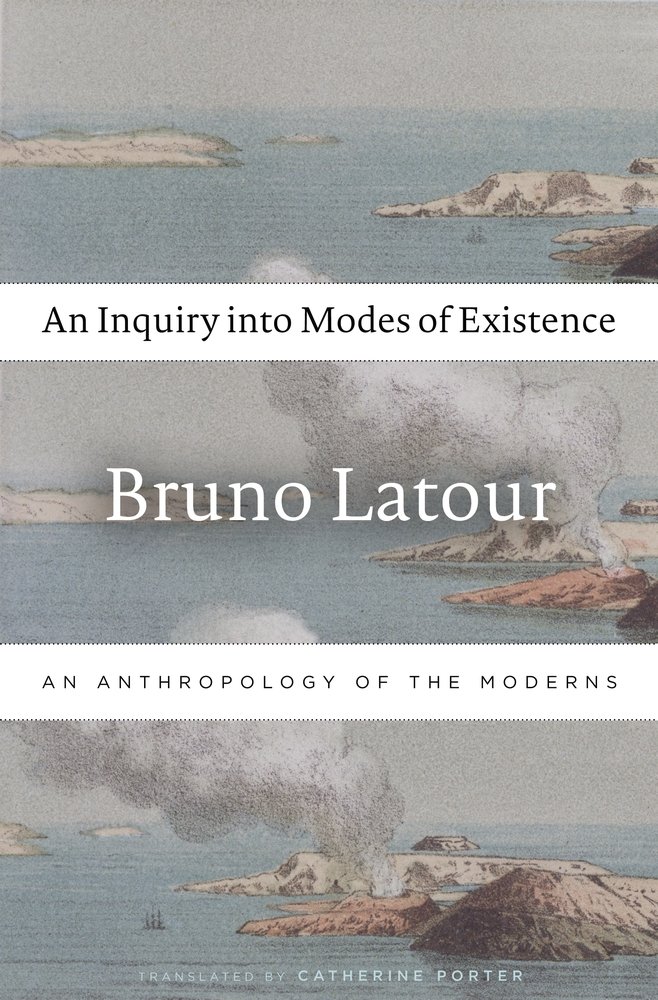

An Inquiry into Modes of Existence: An Anthropology of the Moderns
S**S
So nicely packaged
Hardback, hardly used, so tidily and carefully wrapped, lovely condition. Worth reading of course, and keeping on my shelf as i intended.
K**H
Fascinating, novel, and thought-provoking read
Latour's groundbreaking work is a fascinating read, in much the same way that Julian Jaynes or Gregory Bateson are. The discovery of a philosophical author with something new to say is a revelation in itself. Highly recommended for any reading list that might --- to be even more extreme --- include John Trinick or Erich Neumann as exemplars of 'radical anthropology'.
R**A
Fantastic book with meaningful thoughts in our modern lives
Fantastic book with meaningful thoughts in our modern lives. Best to read his other works prior to this one, as it is a culmination of We Have Never Been Modern. In addition to reading Latour, I strongly recommend the writings of Michel Serres.
Y**R
MAGNIFICANT MISDIRECTED EFFORT
My assessment is that this magnificent edifice lacks foundations and is misdirected.
M**Y
perfect
no complaints
J**N
Five Stars
Excellent!
R**A
Even for a professional social anthropologist the piece is utterly unreadable.
1. It does not let you know what the issues are;2. The Author is so full of himself that is his writes in circles;3. I was completely lost by this terminology and his codes.4. I miss a lot of the worth-while complexities of Claude Lévi-Strauss.
T**E
LATOUR'S AGON: Systematise vs Pluralise
This is an important book advocating a new and exciting form of pluralist ontology. Building on the work of Deleuze, Lyotard, Foucault, Derrida, and Michel Serres, Latour attempts to take the pluralist perspective even further and to illuminate the state of contemporary Western societies (called by him the "Moderns"), to call into question its own self-description, and to propose a more adequate one.Other Continental thinkers like Badiou and Zizek have rejected the pluralist heritage of this preceding philosophical generation and have returned to more intellectually conservative syntheses, recycling the sterile perspectives of post-Lacanian Freudo-Marxism. Latour is part of the movement, along with Bernard Stiegler and François Laruelle, that refuses the intellectual regression that has become popular in Continental philosophy, of which the recent fad for a so-called "Speculative Realism" is one more sign.Latour with his actor-network theory and his modes of existence project, Stiegler with his pharmacology and organology, and Laruelle with his non-philosophy and non-standard philosophy are all trying to break out of the limiting vocabulary of the recent philosophical past and to propose new vocabularies and new ways of thinking.One of the major accomplishments of Latour's book is that by distinguishing 15 different "modes of veridiction" that are also different "modes of existence" he has brought a decisive blow to the various reductionisms that surround us. From the scientism that takes mathematics or physics, or more recently cognitive science, as the model and foundation of our knowledge, to the religious fundamentalism pushing its own political agenda behind the mask of faith, Latour's book allows us to isolate and analyse the coonfusions and conflations at work, and to dissipate the false images (of science, religion, and politics) deployed to consolidate these hegemonic ideologies and the practices that they legitimate.New perspectives are provided on classical philosophical subjects such as the nature and relation of subject and object (brilliantly deconstructed) and the model of truth as correspondence. The book also gives very interesting and innovative accounts of a number of subjects, notably fiction, technology, politics and the law. There is also a chapter on Latour's approach to religion, but this is less innovative and less convincing.Latour presents all this as if it were the result of empirical research rather than philosophical speculation, but there is good reason to doubt that this is the case. As remarked his take on religions is unconvincing, and seems to be a combination of autobiographical confession and quasi-theological speculation. The systematic nature of the work fits badly with the empiricist rhetoric.Further, Latour proposes a new concept of "being-as-other", somewhat similar to earlier pluralist concepts such as Deleuze's difference and multiplicities. However, he immediately contains it within one particular mode, that of the "beings of metamorphosis". This is another point where we can feel the tension between Latour's system and his pluralist project.My conclusion is that the project behind the book is laudable and deserves to be taken seriously and developped further. The actual system contained in the book has many interesting features, but suffers from important flaws. Latour's philosophy to date exemplifies the modern dilemma and agon: oscillating between radical pluralism and democratic openness on the one hand, and consevative consensus and systematic closure on the other. I would not wish to simplify this struggle by eliminating one of its elements, but I would like to reinforce the pluralist passion underlying it.
Trustpilot
1 month ago
1 week ago